
This post was originally published on the Glip Research Substack
Throughout the history of gaming, there have been companies that define a genre, a category, or a whole generation of games. Think Atari for kickstarting the industry, Nintendo for consoles and IP, Valve for platforms, Blizzard for esports, Supercell for mobile, Minecraft for Sandbox. These companies, led by visionary founders and teams, often using the latest advances in technology, changed the face of gaming and took it to the next level.
Zynga falls into the same bracket, pioneering not one but two major movements - free to play and social gaming. Played by hundreds of millions of people, they changed the definition of who a “gamer” was. They turned a still relatively niche industry into an incredibly accessible one.
Now, key folks who made significant contributions to Zynga, from the founding team to leaders of their biggest hits are venturing into the world of blockchain gaming. They’re building games, new player experiences, and even whole ecosystems.
In this piece we dive into what made Zynga such an iconic company, how the Zynga Mafia is leading the web3 gaming charge, and Zynga’s own forays into the space.
Zynga Overview
Zynga’s story is one of many ups and downs.
Founded in 2009 by Mark Pincus, Eric Schiermeyer, Justin Waldron, Michael Luxton, Steve Schoettler, and Andrew Trader, the company was named after Pincus' American bulldog.
They initially gained prominence with Zynga Poker, the first game to be released on Facebook. This marked the beginning of a new era in social gaming with Zynga becoming the top Facebook app developer, amassing 40 million monthly gamers. Their meteoric rise continued with the acquisition of MyMiniLife in 2009, leading to the launch of FarmVille, a game 12 year old me spent countless hours playing. FarmVille quickly became a phenomenon, reaching over 80 million players.
In 2010, Zynga acquired the creators of iconic asynchronous social game Words with Friends, Newtoy Inc, for $53.3mn. Later, Newtoy was rebranded to Zynga with Friends, and launched as a standalone gaming social network.
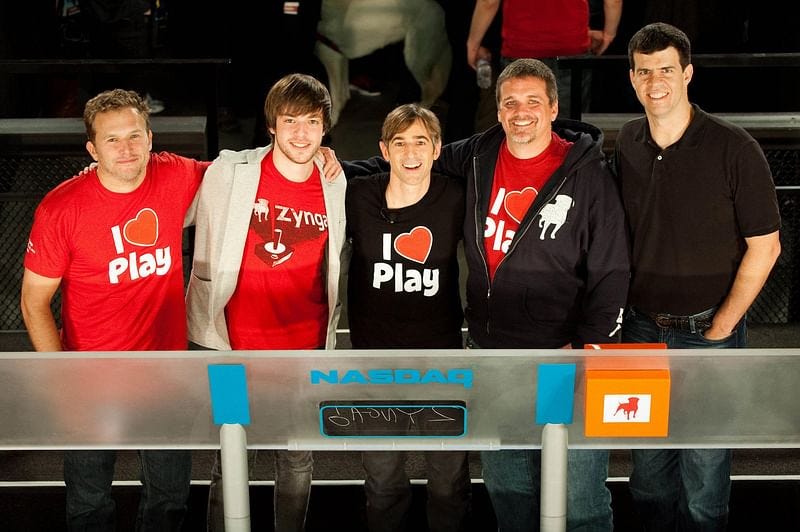
Next, Zynga went public. They filed for and completed an initial public offering in 2011. They also expanded their offerings with initiatives like entering real money gaming (partnering with international operator bwin.gaming) and releasing Zynga API for developers to build their own social games.
It hasn’t always been smooth sailing, though. For many years post their IPO, Zynga faced setbacks including layoffs, office closures, and a decrease in its user base. After several leadership changes, Zynga began to bounce back in 2017, reporting its best quarterly performance in five years. This resurgence was led by titles like CSR Racing 2, which became the most popular racing game on mobile devices.
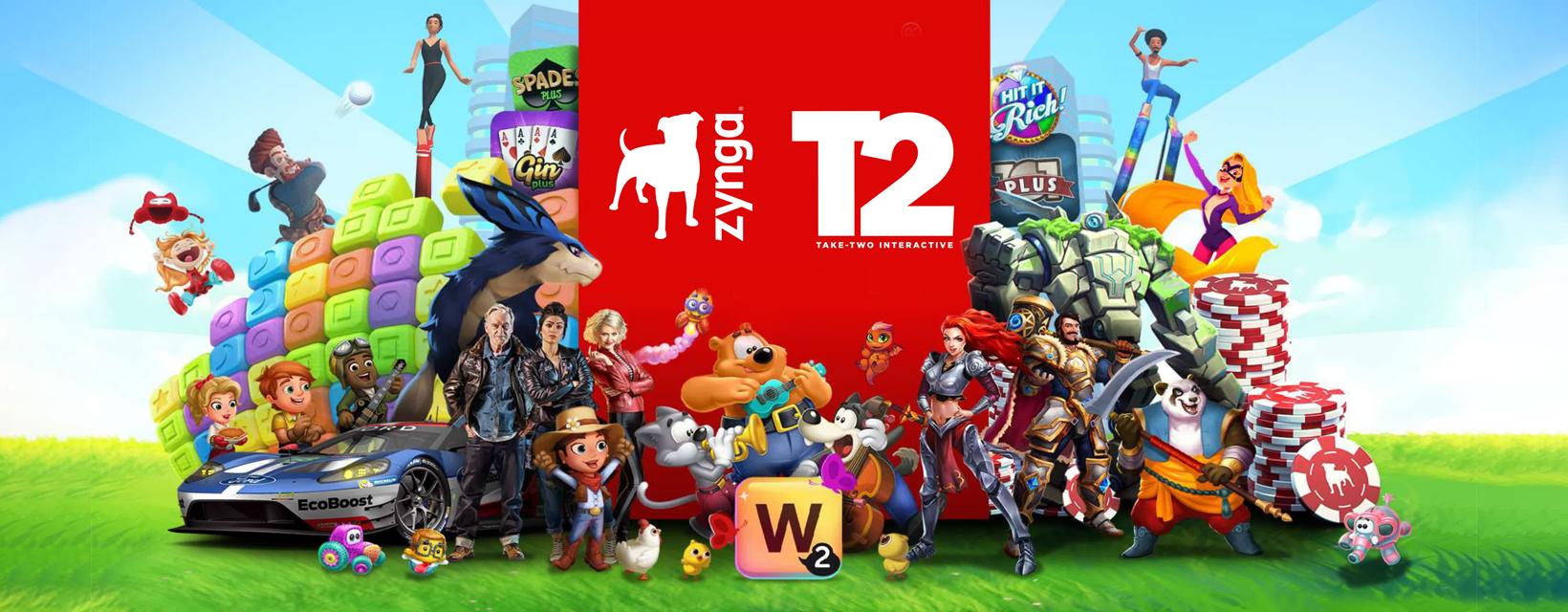
In 2022, console and PC gaming giant Take-Two Interactive acquired Zynga in a $12.7 billion deal.
The Zynga Mafia in Web3 Gaming
With market saturation, heightened privacy concerns, and web2 ad networks altering policies, the tried-and-tested free-to-play gaming model that made Zynga the giant it is today is losing its luster. We find ourselves at the cusp of a generational shift in gaming.
The integration of blockchain technology in games gives studios and publishers, both established and new, a lifeline. Increasingly, they’re exploring NFT and token integrations as novel forms of user engagement and monetisation.
This paradigm shift, propelled by venture capital investments, has sparked a mass migration of talent from web2 to web3. Leading this exodus are several individuals who played significant roles in Zynga's rise to gaming prominence.
Here, we delve into some of the most exciting projects they’re working on.
Gala Games
Gala Games is a web3 powerhouse and a top 150 crypto project by market capitalization. They started out as a gaming project and have since expanded into music and film, with their own (semi-centralized) blockchain powering the entire ecosystem underneath.
Two of Gala’s founders are Zynga cofounder Eric Schiermeyer and creative director Michael McCarthy. Gala aims to become a web3 publisher - creating both in-house titles as well as publishing games created by external studios (on exclusive deals). The Zynga DNA is apparent when you look at one of Gala’s initial games - Town Star, a farming simulator in the ilk of Farmville.
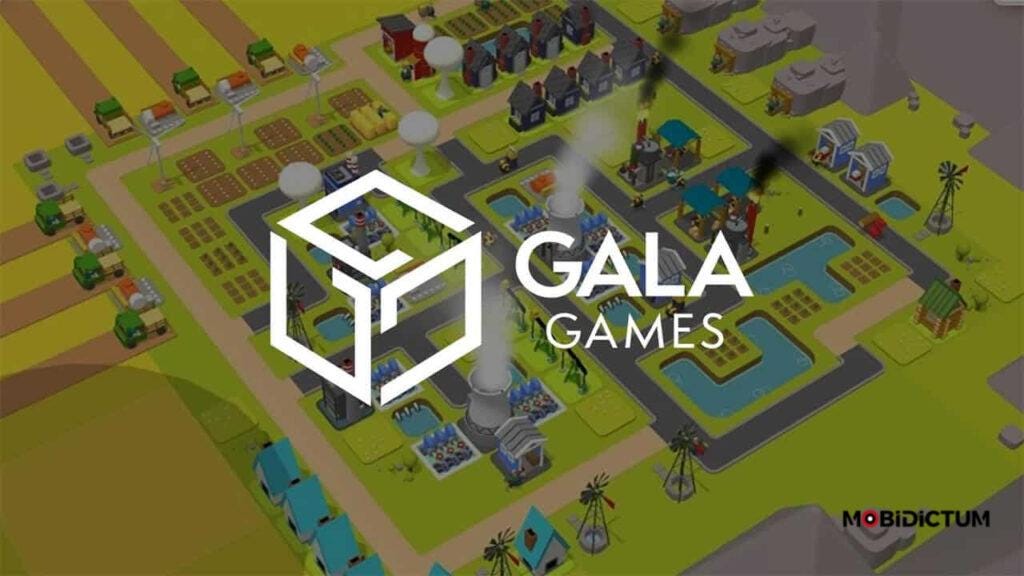
Gala has over 30 games in its pipeline across various stages of development. These range across platforms and genres, from Grit (the first web3 game on the Epic store) to Superior (a roguelite third-person shooter) to Eternal Paradox (a cross platform 4x strategy game). The founders’ experience has also helped Gala secure well-established IPs like The Walking Dead and Battlestar Galactica.
While still awaiting their first breakout hit, which is also the case for the sector as a whole, Gala has been silently chugging along, building its empire one brick at a time. Given the sheer volume of activity happening in the ecosystem, the experience of the founders, and a healthy treasury, we believe it’s just a matter of time before that first hit arrives.
Fractal
Fractal is one of the leading cross-chain web3 gaming platforms. Starting out as an NFT marketplace for Solana games, they have since expanded to Polygon and built additional offerings like:
- a single-click sign in wallet to make gamer onboarding easier
- hosting regular tournaments and game nights with partner games
- a desktop web3 game launcher
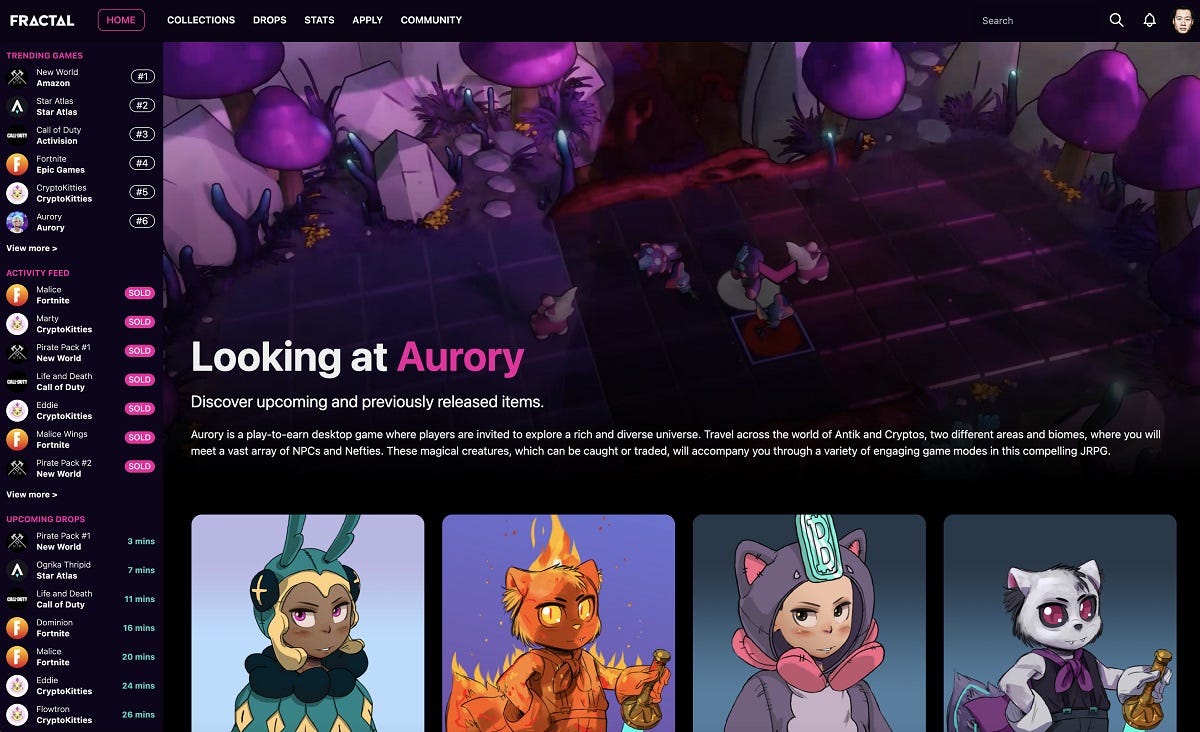
Two of the company’s founders are Twitch founder Justin Kan and Zynga Mafia Robin Chan. Chan was the founder of XPD Media, a Chinese social gaming company, which was subsequently acquired by Zynga in 2010 to mark their entry into Asia. Chan served as the general manager for Zynga’s Asian operations.
Fractal’s end game is clear - they want to become the Steam of web3. While this is one of the ultimate crowns in web3 gaming, Fractal is not alone. Older marketplace competitors like Magic Eden and newer launchers like Elixir and HyperPlay are also vying for the same prize and it’s difficult for us to see how these projects can built competitive moats.
Perhaps a deeper integration with Twitch or leveraging Chan’s expertise in Asia (the top market for web3 gaming) can help Fractal differentiate itself from others.
Wildcard Alliance
When Paul Bettner launched Words with Friends in 2009, it was a scary time for him. Till that point, he had spent his career making Console and PC games like Halo and Age of Empires. With Words with Friends, a free to play game for mobile devices, he found himself in uncharted territory.
His fears eventually turned out to be unfounded. The game became a revelation, led to Zynga acquiring his studio Newtoy for over $50 million, and till 2017, was still hitting the top rankings on the app store.
But what led him to take the plunge? He answered this in a 2012 interview with Engadget, saying "When the iPhone first came out and I saw it and got my hands on it, I realized it was the future and that I had to make a game for it." Bettner recognized the potential of a new technology disrupting the gaming industry, and despite the uncertainty, started building for it.
Bettner is now back building with another potentially disruptive technology for games - blockchain. His studio, Playful Studios, has raised $46 million for Wildcard, a competitive multiplayer online battle arena (MOBA) game akin to the likes of League of Legends and Dota 2. Interestingly, Wild Card was in development for over 5 years before the team decided to integrate web3 elements (via Polygon) into it. It’s a game first, web3 game second.
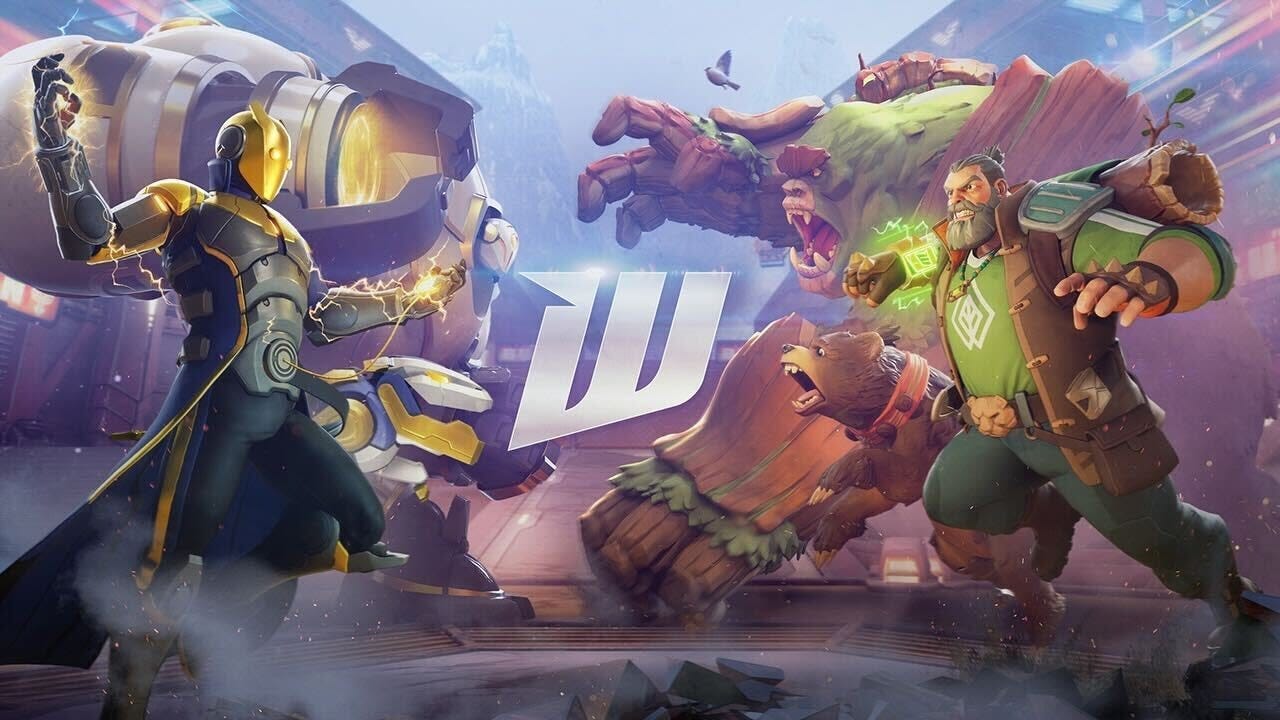
Will history repeat itself for Bettner with web3? We’ll be on the lookout.
Storyverse
Justin Waldron dropped out of college in 2007 at the age of 19 to become one of the founders of Zynga. He played an instrumental role in Zynga Poker (their first game) and remained at the company through its arguable peak until 2013.
In 2020, after spending a few years angel investing in startups, he raised a whopping $100mn for his new gaming company, PlayCo - the world’s first instant gaming startup. The draw for investors? Justin’s proven track record and expertise in social gaming. This thesis was further validated when Meta followed up with a $40 million investment in the company after the initial round.
Waldron is now putting his bets on web3 with his newest venture, Storyverse. Storyverse, however, is not a game as much as it is a platform for writers to leverage NFTs the way artists have. It empowers them to write, publish, and monetize short-form animated stories, built on top of existing NFT IPs like the Bored Ape Yacht Club. These stories will allow creators to build a “choose your own experience” style narrative for gamers, who can then mint these stories as NFTs.
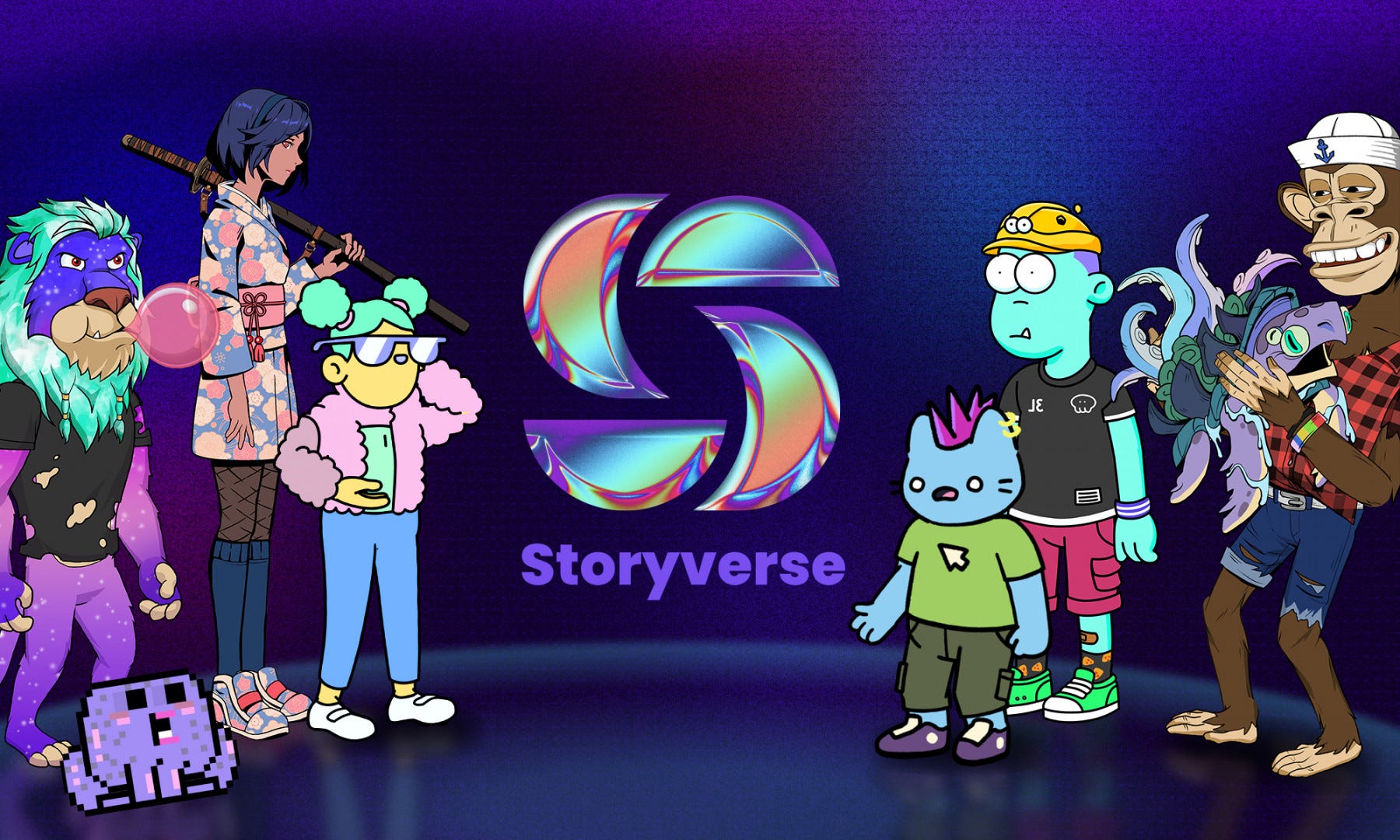
Waldron explains his rationale for this play in detail in this excellent piece. It presents a unique and interesting use case for NFTs, and is definitely something we will be monitoring closely.
Pirate Nation
Amitt Mahajan is one of the most underrated figures in Zynga’s history. Founder and CTO of MyMiniLife (acquired by Zynga), Mahajan is one of the creators of Farmville. By all means, Farmville is one of the most iconic games ever. At its peak, the game had over 32 million daily and 60 million monthly active users. Overall, over 180 million people played Farmville. That’s over 2% of the world’s population.
After leaving Zynga in 2011, Mahajan founded Toro (acquired by Google) and was the founding engineer at Fig (acquired by Republic). After experimenting with a consumer NFT platform, Rare Bits, a few years back, he started web3 gaming studio Proof of Play in 2021.
Proof of Play’s first game is Pirate Nation, a fully on-chain RPG with a boxy voxel-art aesthetic and dynamic NFTs. According to their whitepaper, it’s a light-hearted game where players send their NFT pirates on adventures to collect material for crafting, treasures, and gold. Currently, an NFT is required to play the game. We’re curious to know if the team intends to change this in the future and if not, how they plan on scaling.
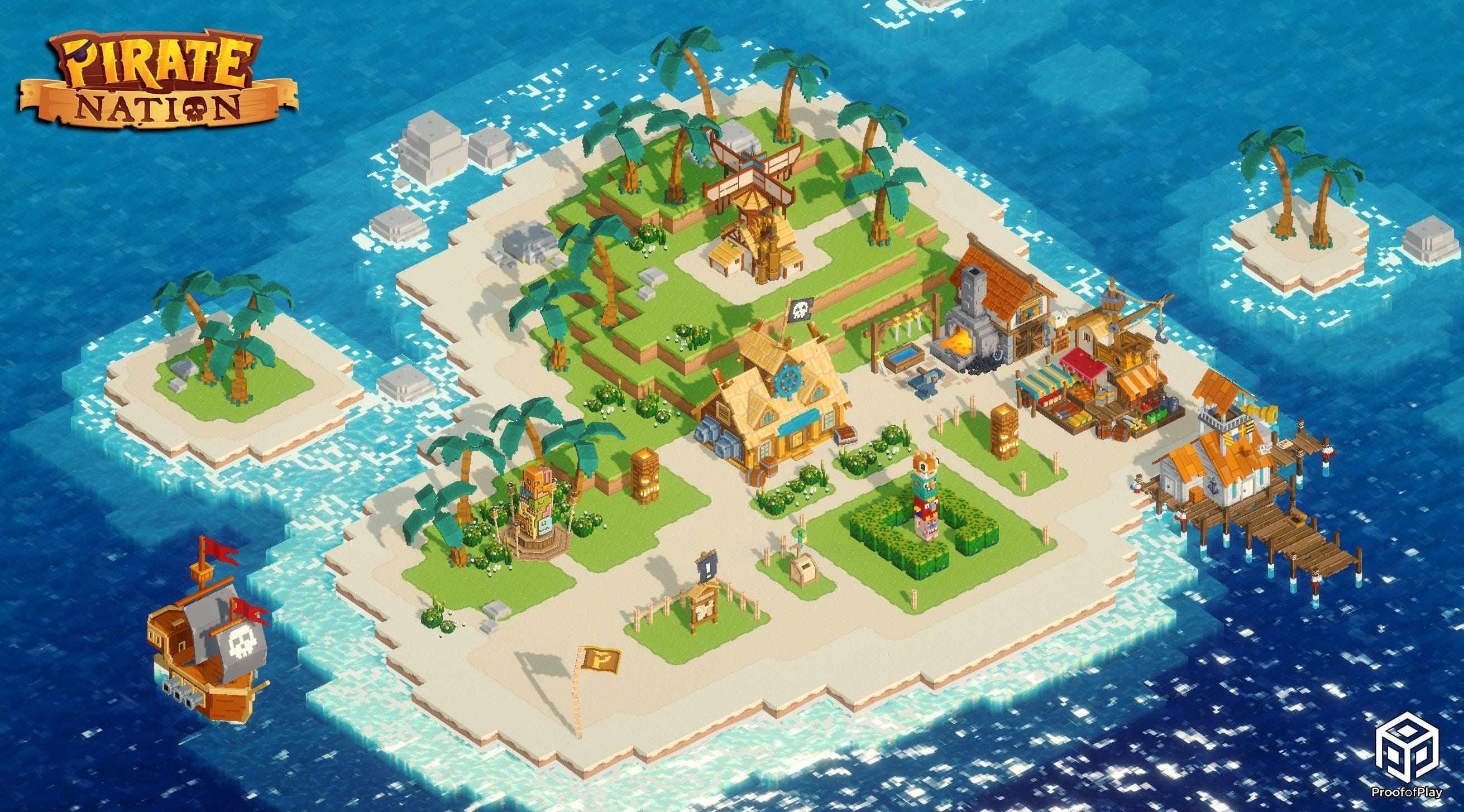
However, to make the game more accessible and ease the user experience, the studio is sponsoring the gas fees for all on-chain player transactions. Such initiatives are essential for web3 games to hit the mainstream. Interestingly, this feature also led the team to recently switch from Polygon to Arbitrum Nova, citing concerns over high gas fees on the former.
We’re bullish on Proof of Play and their team. But then, they created Farmville, so it’s tough not to be!
Playken
While Zynga made its fortune building games on Facebook, they could never quite match that success on mobile. This led to them acquiring NaturalMotion in 2014 in a stunning $527 million deal. NaturalMotion were best known for their racing game CSR Racing, which was at the point the highest grossing racing game on both iOS and Android.
After a quieter start to life post acquisition, NaturalMotion released CSR Racing 2. The game was a wild success, both critically and commercially and was identified as the driving force behind Zynga's resurgence in 2017, resulting in a 14% increase in mobile revenues. The game continues to have a healthy user base to date.
CSR2 was led by Tak Fung, who now has his eyes set on web3 gaming. He is one of the founders of Village Studio, a company founded in 2021 and building Playkens, NFT characters that are interoperable across different games.

Often touted as one of the unique use cases of web3 gaming, very few (if any) web3 gaming projects have delivered on the promise of virtual assets being interoperable across games. Playkens is looking to change that. Each Playken character comes equipped with body parts, wearables, with their own stats and attributes. Game developers can use these attributes to tailor gameplay experiences for players.
It’s another unique play with web3 native innovation. You can learn more in their litepaper and we hope to cover the project separately in a future piece.
Zynga’s own forays into Web3 Gaming
Alongside some of its most prominent alumni, Zynga too has publically flirted with blockchain games.
In 2021, they announced a partnership with web3 gaming company Forte to help them enter the space. They also hired Matt Wolf to lead their web3 gaming initiative. In a 2022 interview, Wolf doubled down on Zynga’s belief in blockchain gaming and also hinted at them creating their own game from the ground up.
Since then, we haven’t heard much about a game being developed, let alone being close to release. There could be several reasons for this. Web3 gaming is still not popular amongst traditional gamers. Given that Zynga is now a part of Take Two, a careless venture into web3 can cause severe uproar from fans of existing (and serious money making) games. Just ask Ubisoft.
While some may speculate that Zynga could have followed in the footsteps of Instagram and shut down its web3 endeavors, we don't think that's the case. Wolf and his team are still around and they’re actively hiring for web3 positions.
Another route Wolf has hinted Zynga could take is investing in or acquiring a successful web3 gaming company. Zynga is obviously no stranger to acquisitions and we’ve also seen other web2 giants like Nike and Amazon go down this path.
Come what may, it’s going to be exciting to watch as another chapter in the company’s history unfolds.
Conclusion
Web3 gaming is taking time to mature. We’re still awaiting our first standout hit. Given its natural entanglement with crypto, the industry is still recovering from the scandals of the past few months and years.
The promise, however, is undeniable. The quality of talent is staggering. And the Zynga mafia is at the forefront of this movement. Each of them is setting up the foundations with the hope of repeating what they did at Zynga - changing the very face of gaming. In the midst of this, their former employer is also in the mix, vying for the same treasures.
It’s going to be a wild watch to see how all of this unfolds. And we can’t be more excited to see it play out.